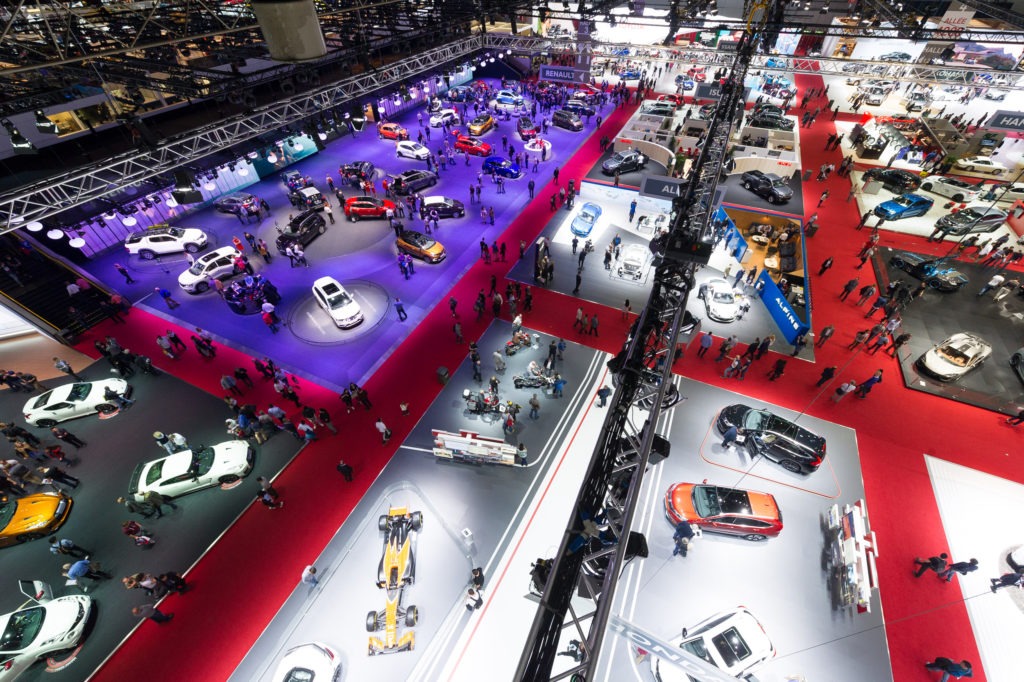Is this the end of traditional motor shows?
23 March 2020

23 March 2020
Does the cancellation of the Geneva motor show earlier this month signal the death of traditional events? Autovista Group Daily Brief editor Phil Curry discusses the potential for such events in the future.
Following the axing of the Geneva International Motor Show (GIMS) earlier this month, carmakers were forced to think on their feet over the introduction of new models and concepts. A majority decided to continue with online presentations and press conferences, with the media bringing vehicles to the masses.
The cancellation, due to the coronavirus (COVID-19) pandemic, may have changed many views on the need for traditional automotive shows. Such events were already struggling as visitor numbers fell and their relevance was being called into question. Forcing carmakers to go online will allow them to gauge interest through such channels.
Media only?
One group that is guaranteed to visit automotive shows no matter what the size is the media. While events only run one or two ′press’ days, these are usually held before the show opens to the public. Conferences are planned, launches are scheduled and journalists, photographers and videographers are invited by manufacturers to write about and review new models, or shout about new industry initiatives.
As a journalist, I can honestly say there is nothing better than seeing a vehicle up close. At the GIMS in 2019, for example, it was good to be able to sit in the upcoming Honda e, to understand the position Honda was taking with it as a city car and the new technologies that it would include – such as the cameras instead of wing mirrors. A tactile experience allows journalists to write honestly about a vehicle, prior to any road testing.
Online launches do not offer this experience, but they do allow the media to tell the public about what is coming. You can see our own ′Geneva Round-up‘ as an example. For carmakers, column inches spark interest and inspire research by potential buyers. Likely, there will also be an increased number of manufacturer media days once the coronavirus crisis has eased.
Can a show rely on just attracting the media? The simple answer is no and if manufacturers see interest in their new models, despite the lack of a physical event, it may lead them to question future participation.
Public affair
While shows have the media in exclusive attendance for the first days, many more are dedicated to the public. Yet numbers of people visiting have dwindled in recent years. The IAA 2019 in Frankfurt saw numbers halve from its 2015 total, and other large shows have reported similar drops.
The question is straightforward – why buy an expensive show ticket when you can read about it and see images online?
The traditional motor show is a dated affair. The old setup – manufacturer stands, cars roped off and large ′do not touch’ signs everywhere – is effectively the same for a member of the public as looking at pictures online. There is no point to such an event, apart from picking up multiple brochures and getting some exercise.
There is, therefore, a need for shows to adapt and offer the public more. Test drives, shows, hands-on experiences will keep such events relevant.
Prime example
One noticeable absentee at GIMS 2019, despite having a lot to say, was Ford. The carmaker recently launched its Puma SUV and Mustang Mach-E, the first in a range of electric vehicles (EVs). Instead, it had plans to focus on global ′hands-on’ public events, allowing it to showcase the Mach-E with test-drives in a festival-style show being held in cities around Europe. Such events are, however, postponed in the COVID-19 era.
These events, when held, proved popular, with drivers able to see and try the Mustang Mach-E first hand. Images and comments on social-media platforms are also shared, and these generate clicks to websites and visits to dealers – although, in the US, the carmaker has seen great demand for sales online.
The Detroit motor show is to introduce ′test-drive’ areas and events in the city to make its event more of a motoring festival, rather than a bland walk-around. Germany’s motoring body, the VDA, has announced that the IAA will move to Munich in 2021 and focus more on mobility as they look to showcase the event as relevant in a changing automotive market.
The cancellation of the GIMS will allow carmakers to monitor the benefits of online presentations. With most exhibitors having lost money due to this year’s event not taking place, and with cost-cutting likely to be crucial as COVID-19 continues to play havoc with sales and manufacturing, the traditional motor show may be a thing of the past. Organisers of the GIMS, and the Paris Motor Show, must be looking at their models to see what they can do when it comes to attracting businesses, and the public, back to their halls.
What do you think? Share your views with us through Twitter and Linkedin